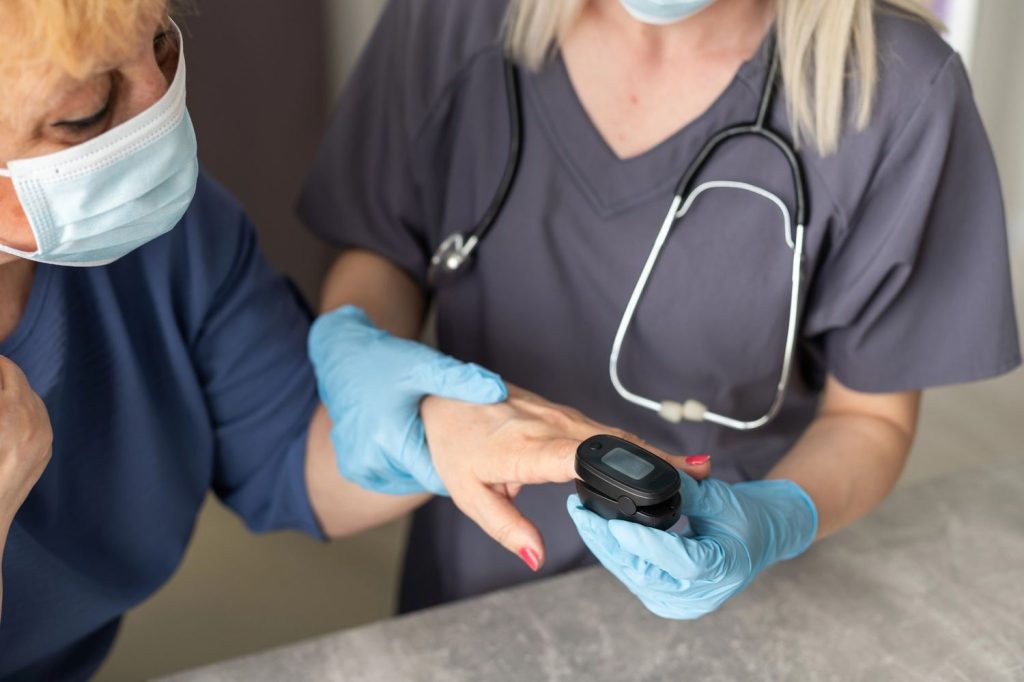Does Immigration Check Your Medical History?
October 7, 2025
If you’re applying to move to the United States, one of the questions that might be keeping you up at night is: “Does immigration check my medical history?” It’s a common concern, and for good reason.
No one wants an unexpected health requirement to derail months—or even years—of planning. But the truth is, while immigration authorities do look at your health, the process is structured, fair, and designed primarily to protect public health rather than to judge your personal medical past.
In this article, we’ll break down everything you need to know about immigration medical exams, why your medical history is reviewed, what conditions are most important, and how you can make the process as smooth as possible—especially if you’re in Bellaire and planning to visit a local Immigration Medical Exam Clinic. By the end, you’ll feel more confident and prepared, rather than anxious about unknown rules.

Why Medical History Matters in Immigration
Health checks aren’t just bureaucratic hurdles—they serve a very real purpose. The U.S. government wants to make sure that anyone entering the country:
- Doesn’t pose a public health risk,
- Can take care of themselves, and
- Is able to live independently without placing an undue burden on public resources.
In practice, this means your medical history is important, but it’s far from a judgment on your character or worthiness. It’s about ensuring the safety of communities and confirming that applicants can thrive in their new environment.
Understanding Immigration Medical Exams
What is an Immigration Medical Exam?
An immigration medical exam is essentially a health assessment tailored specifically for immigration purposes. Unlike a routine doctor visit, it follows strict USCIS (U.S. Citizenship and Immigration Services) guidelines. The exam includes a review of your vaccination history, screenings for chronic and infectious diseases, and an evaluation of your mental health.
Think of it as a specialized check-up: it’s not meant to nitpick your health, but to ensure that everything is in order for your new life in the U.S.
Who Needs to Take It?
Almost anyone applying for a green card, permanent residency, or certain long-term visas will need to complete this exam. Children, the elderly, and even applicants with no current medical issues are included. The goal is universal: making sure that all applicants meet minimum health standards and that the U.S. population remains protected from communicable diseases.
Medical History Checks During Immigration
Immigration officials don’t need every single detail of your health past. They focus on areas that could impact public safety or your ability to adjust to life in the U.S.
Vaccination Records
One of the most common checks is your vaccination history. Immigration doctors will verify whether you’ve received vaccines for measles, mumps, rubella (MMR), polio, hepatitis B, influenza, and others depending on your age.
If you’re missing any required shots, you’ll likely need to get vaccinated before your application can move forward. Some people worry about needle phobia, but don’t worry—the clinic staff at the Immigration Medical Exam Clinic in Bellaire are experts at making vaccinations as stress-free as possible.
Chronic Illnesses and Conditions
Do you have diabetes, asthma, or heart disease? These conditions aren’t automatic disqualifiers. Immigration authorities primarily want to know whether your illness could pose a public health risk or make it difficult for you to live independently.
For example, someone with well-managed diabetes who follows treatment plans and regular check-ups is rarely an issue. On the other hand, untreated conditions that could require extensive public healthcare might raise concerns—but they are usually manageable with proper documentation and care plans.
Mental Health Screening
Mental health is evaluated to determine whether there’s a risk to yourself or others. The focus is on current stability rather than past diagnoses. If you have a history of depression or anxiety but are well-managed and stable, it’s unlikely to affect your immigration process.
The important takeaway? Honesty is critical. Doctors are trained to handle sensitive information confidentially, and lying or hiding conditions can cause unnecessary delays.
How Immigration Authorities Use Medical Information
Public Health Considerations
Immigration authorities have a responsibility to prevent the spread of contagious diseases. This is why tuberculosis (TB) testing, vaccination verification, and screenings for infectious diseases are standard.
Your medical records help authorities ensure that new residents do not unintentionally introduce or exacerbate public health risks. Think of it as a protective layer for the entire community.
Impact on Immigration Decisions
Most health conditions do not automatically block immigration. Minor illnesses, chronic conditions under control, and well-managed mental health issues are rarely disqualifying.
However, serious infectious diseases, missing vaccinations, or health conditions that could require substantial public resources might delay your application. The key is to resolve these issues proactively, which is where a clinic like the Immigration Medical Exam Clinic in Bellaire can guide you step by step.
Common Medical Conditions Reviewed
Tuberculosis (TB) Testing
TB testing is mandatory. If you test positive, treatment is required before the immigration process can continue. TB is considered a serious public health risk, so the system ensures it is fully managed before approval.
HIV and Other Infectious Diseases
HIV testing isn’t required for every visa type, but certain immigration paths do request it. Other infectious diseases that could pose public health risks are also reviewed. It’s not about judgment—it’s about preventing outbreaks.
Drug and Substance Use History
Past or current substance abuse is evaluated carefully. Authorities are mainly concerned with your ability to live safely and independently. The clinic will check your medical records, conduct tests, and provide guidance for rehabilitation or treatment plans if needed.
Preparing for Your Immigration Medical Exam
Preparation can make a huge difference in how smoothly your exam goes.
Documents You’ll Need
Bring everything that can demonstrate your health history, including:
- Vaccination records
- Previous medical records and lab results
- Current prescriptions and dosages
- Any specialist reports
Having all this information on hand prevents unnecessary repeat tests and delays.

Tips for a Smooth Exam
- Be honest: Doctors are there to help, not judge.
- Stay organized: Bring all documents in one folder.
- Don’t hide anything: Transparency avoids complications later.
- Ask questions: If you’re unsure about a test or requirement, the clinic staff can explain clearly.
Immigration Medical Exam Clinic in Bellaire
Why Choose a Local Clinic
Visiting a local clinic like the Immigration Medical Exam Clinic in Bellaire has many advantages:
- Personalized care from staff familiar with local procedures
- Convenient appointments close to home
- Experienced doctors who guide you through each step
Services Offered at Immigration Medical Exam Clinic
The clinic handles all aspects of the immigration medical exam, including:
- Vaccination verification and updates
- TB testing and treatment
- Screening for chronic and infectious diseases
- Mental health assessment
- Complete report submission to USCIS
They also provide follow-up instructions and help ensure that your application is not delayed due to missing information.
Immigration Medical Exam Clinic Serving the Bellaire Community and Beyond in Houston
Immigration Medical Exam Clinic is dedicated to serving the diverse needs of the local community of Houston, including individuals residing in neighborhoods like Bellaire. With its convenient location near landmarks such as the Bellaire-Zindler Park and major intersections like Beechnut St. and W Loop S. (coordinates: 29.689720830136608, -95.4627531309153), we offer the cheapest immigration medical exam Houston services.
Get Cheapest Immigration Medical Exam At Bellaire Now
Call Us Now
Navigate from Bellaire to Immigration Medical Exam Clinic Now
What Happens After the Exam
Medical Report Submission
Once the exam is complete, your medical report is sent directly to USCIS. You don’t have to worry about misplaced documents—the clinic ensures everything is handled correctly and on time.
Follow-Up Requirements
If additional treatments, vaccinations, or lab tests are needed, you’ll receive clear instructions. Completing these promptly is essential for keeping your immigration process on track.
FAQs
Q1: Will a minor illness affect my immigration application?
Most minor conditions, like seasonal allergies or minor surgeries, do not impact your application.
Q2: Do I need to provide my full lifetime medical history?
No. Focus on chronic illnesses, vaccinations, infectious diseases, and mental health history. Routine past check-ups are generally not required.
Q3: Can I choose my own doctor for the immigration exam?
You must visit a USCIS-approved civil surgeon. The Immigration Medical Exam Clinic in Bellaire is fully authorized.
Q4: How long does the medical exam process take?
Typically, 1–2 hours. If additional tests or vaccinations are needed, it may take longer.
Q5: What happens if I fail the medical exam?
You may need to complete treatment or vaccinations. Failing doesn’t automatically reject your application, but it must be resolved.
